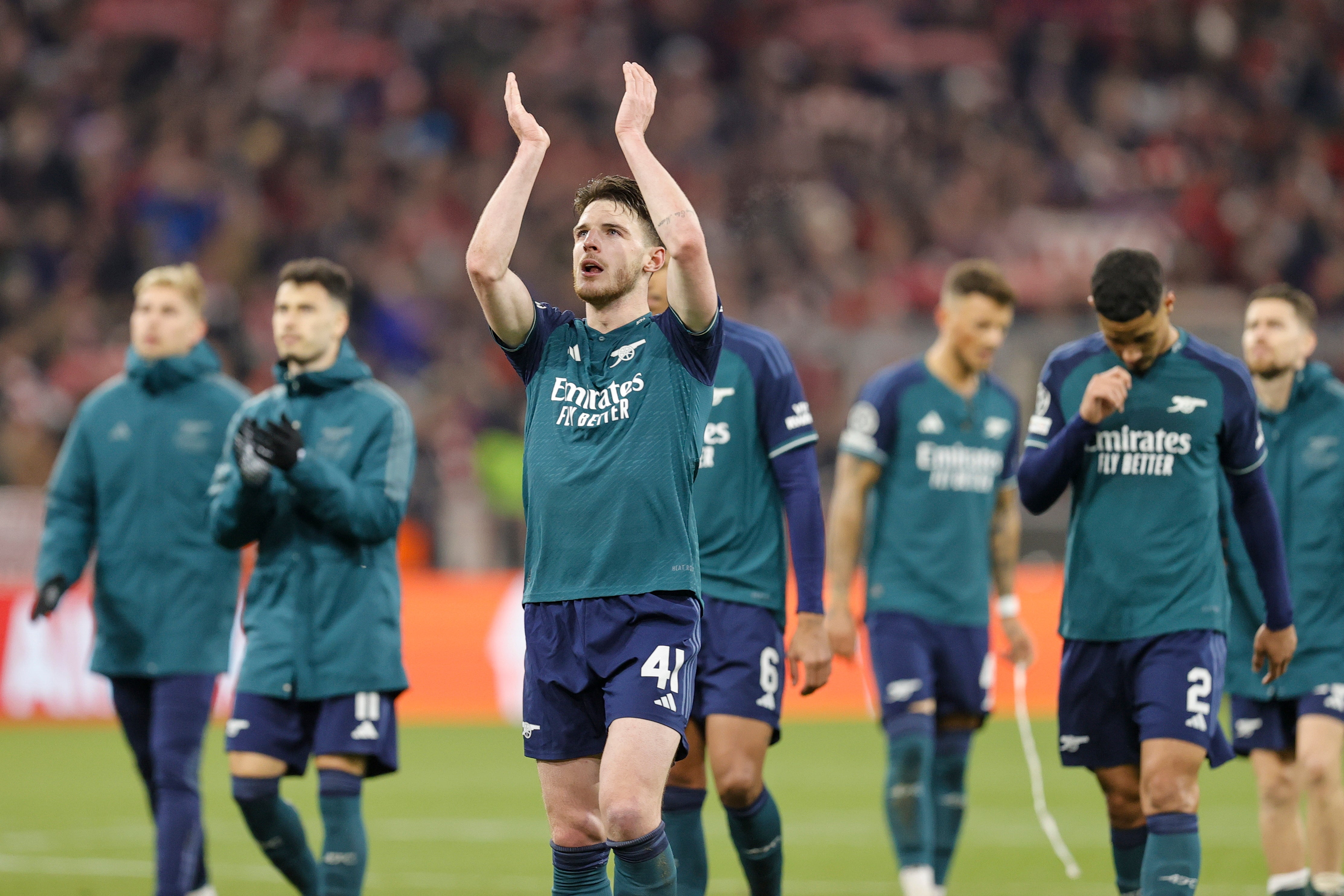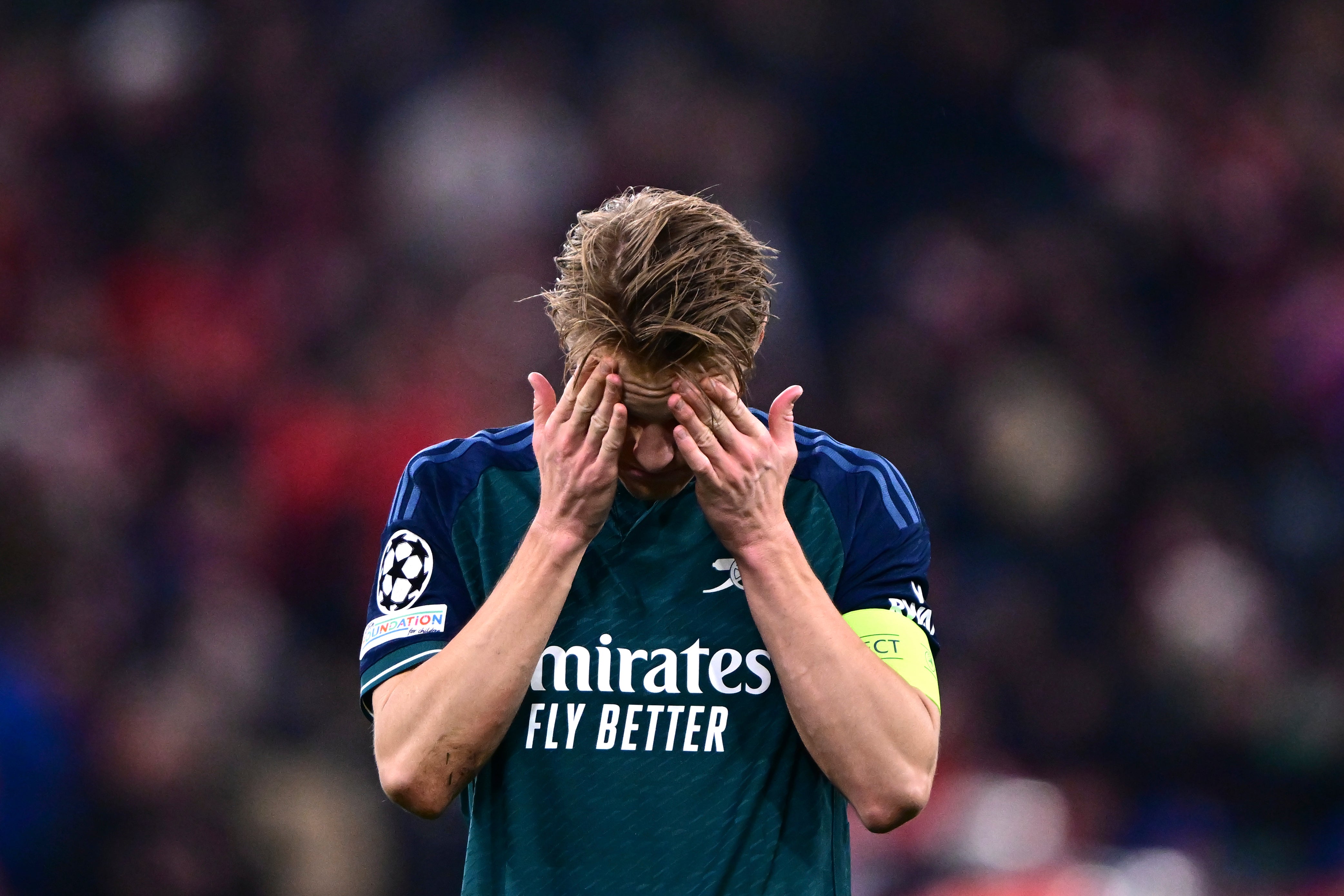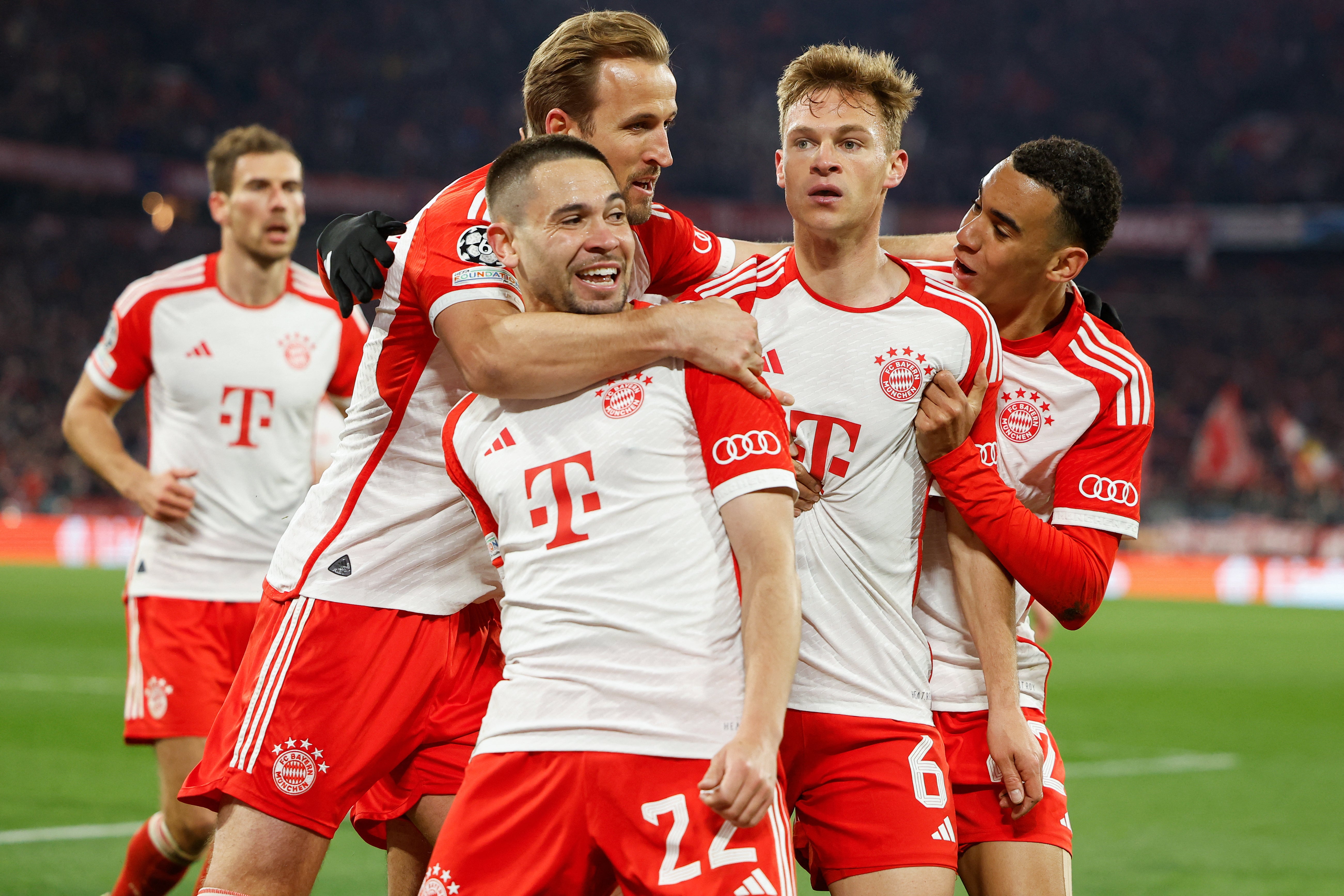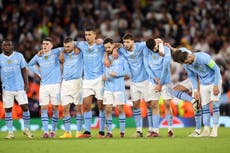Why the rest of Europe is celebrating the Premier League’s night of failure in the Champions League
‘Something must be done about the Premier League’ is a common refrain in European club boardrooms - so Real Madrid and Bayern Munich duly obliged, knocking out Manchester City and Arsenal to leave no English clubs at the semi-final stage for only the second time since 2017
It remains as much of a surprise as the Premier League’s total wipe-out. In the final minutes of Arsenal’s defeat to Bayern Munich, a player as brilliant as Bukayo Saka had the chance to just go for it… and didn’t. From a free-kick on the edge of the Bayern box, he played the ball short, and Arsenal passively passed the ball again. They kept control but couldn’t keep their place in the Champions League. It was a disappointingly meek elimination for a team that have been characterised by their intensity.
There are a number of possible reasons for Arsenal’s exit. They might have been fatigued. They might have just been tactically subdued by a cannier Bayern Munich. It was possibly too soon in their development as a team, as Mikel Arteta indicated, or maybe too late in their season.
The worst element for Arsenal is that it seemed a reversion to the most prosaic and flat of their football from the 2020-21 period. That was when Arteta was methodically trying to build his philosophy but it often meant overly controlled displays, as if the squad was trying to gradually develop the muscle memory needed to instinctively play his football.
Maybe it actually isn’t a surprise that they regressed to this at this moment, given their lack of experience in the Champions League. Both Arteta and Thomas Tuchel referenced it as crucial after the game, and even the decisive factor.
Either way, that Saka moment seemed to symbolise how Arsenal just didn’t fully believe.
That isn’t something you could usually say about the Premier League, given the amount of bombast that surrounds the competition. It is why many in Europe will be celebrating the absence of English clubs from the Champions League semi-finals for only the second time since 2017. That is even allowing for the fact that super clubs like Real Madrid, Bayern Munich and Paris Saint-Germain can’t exactly be considered the saviours of football. It is more about the perceived hubris of the Premier League, especially when they pay £2bn more in wages than any other league and earn billions more in broadcasting revenue.

The world’s greatest show isn’t showing its face in the Champions League semi-finals.
That wasn’t down to any lack of belief on Manchester City’s part, of course, except maybe when it came down to penalties. The truth was their quarter-final against Real Madrid never should have got that far. City had destroyed them, in a show of force that was at times the equivalent of last season’s 4-0. The only element that was really missing was the finish, which will only sharpen this debate about Erling Haaland.
That quarter-final really did come down to small margins, much more so than Arsenal, in the way that still makes knock-out football wondrous. No matter the money, no matter the wider forces, the bounce of a ball can still change an entire tie.
That is actually refreshing in a football world where virtually everything is increasingly dictated by finance and off-field issues. There has been a general gloom in the European game about the strength of the Premier League, as if it’s almost futile to try and compete. That feeling was only compounded by the fact those seven years have seen English clubs occupy over half the places in Champions League finals. It is probably better for football as a whole to not have such trends constantly continue, and for such concentration of wealth to get worse. The great virtue of European football is after all its variety and vitality. Anyone that grew up playing Subbuteo, and poring over the kit colours or names for the scoreboard, will testify to that. It fed into the richness of the continental game.

A common refrain in European club boardrooms and meetings has been “something must be done about the Premier League”. Real Madrid and Bayern Munich duly obliged.
That is of course where any great celebration about how refreshing this is must end. While it’s good that one country doesn’t just dominate, it isn’t healthy that the same few super clubs take their place. This will be the third time Bayern and Madrid have met in knock-outs in eight seasons, the fifth in 13 and the ninth this millennium. Over a third of Champions League seasons this century have featured these two facing off late in the campaigns. Five of those have been semi-finals. It is one of the most common ties, which is precisely as figures like Florentino Perez would have it.

Both clubs were of course among the main agitators for more Champions League prize money to be awarded to regular participants in that juncture year of 2016, in the vacuum after Michel Platini’s departure as Uefa president.
On the other side, then, is the other major sportswashing project in Qatar’s Paris Saint-Germain. Their way may yet be barred by Borussia Dortmund, who are probably the closest club to a “saviour” this season has.
Even that is overstating it a little when you see their financial strength compared to 99.99% of football. Dortmund - like Bayern and PSG - were also invited to the Super League, although they admirably rejected it. That is who counts as an underdog in modern football.
It’s also why this shouldn’t really provoke any greater debate over the direction of the Premier League in terms of what has happened on Champions League pitches this week.
The timing is maybe just symbolic given the English competition is facing a crisis over the number of cost-control cases and points deductions. For the foreseeable, however, the Premier League will continue to rake in more cash than anyone else. It will continue to do better in Europe through sheer force of numbers. The wider trend is unmistakable, but trends also allow for occasional variation and basic human fallibility.
That is what has happened here. Arsenal weren’t ready for this challenge and were outfoxed. It should be all the more frustrating given that Bayern were there for the taking, and Arteta’s side are probably a better team on the whole. Knock-out football, however, has a glorious knack of defying such realities. That was one element that was similar to City’s tie. Their defeat came down to a large part of blind luck but also admirable Real Madrid tunnel vision.
The Premier League is still at the top. We just won’t be seeing any of its sides at the peak of European football this season.
Join our commenting forum
Join thought-provoking conversations, follow other Independent readers and see their replies
Comments


Bookmark popover
Removed from bookmarks